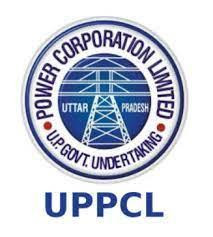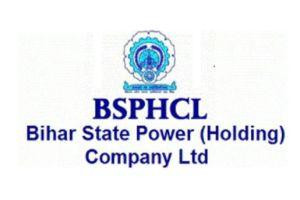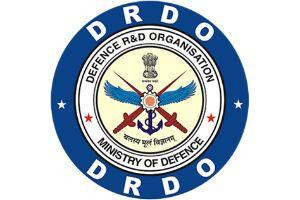
PSU recruitment refers to the process of hiring candidates for vacant positions in Public Sector Undertakings (PSUs) in India. PSUs are government-owned companies that operate in various sectors such as engineering, finance, telecommunications, oil and gas, power, and more. PSU recruitment involves conducting exams, interviews, and other selection processes to identify and hire suitable candidates for different job roles in these organizations.
PSU recruitment exams are highly competitive and attract a large number of applicants from across the country. These exams typically assess the candidates' technical knowledge, general aptitude, reasoning, and English language skills, depending on the specific job requirements. Eligibility criteria, exam patterns, and syllabus may vary depending on the PSU and the position being advertised. Candidates who qualify the selection process may be offered attractive pay scales, job security, career growth opportunities, and other benefits associated with PSU jobs.
PSU recruitment is a significant avenue for employment opportunities in India, providing candidates with the chance to work in prestigious government-owned organizations and contribute to the country's economic growth.
Why choose PSU Jobs?
There are several reasons why many candidates choose to pursue jobs in Public Sector Undertakings (PSUs) in India:
Job Security: PSU jobs are known for their stability and job security. PSUs are government-owned companies, and once an employee is recruited, they generally enjoy a sense of job stability with a low risk of layoffs or downsizing.
Attractive Pay Scales and Benefits: PSUs typically offer competitive pay scales and perks, including medical facilities, housing allowances, retirement benefits, and more. PSUs often provide better compensation packages compared to private sector jobs, making them financially attractive to candidates.
Career Growth Opportunities: PSUs generally offer ample opportunities for career growth and advancement. Many PSUs have well-defined career progression paths and provide avenues for skill development, training, and promotions based on performance.
Prestige and Reputation: PSUs are considered prestigious employers due to their government ownership and contribution to the country's economic growth. Working in a PSU is often seen as a symbol of social status and can enhance an individual's professional reputation.
Work-Life Balance: PSUs usually have regular working hours, limited or no night shifts, and follow strict labor laws, providing employees with a better work-life balance compared to certain private sector jobs that may have long working hours or irregular schedules.
Social Impact: PSUs often play a crucial role in providing essential goods and services to the public, such as power, oil and gas, transportation, and more. Working in a PSU can give employees a sense of contributing to the welfare of society.
Opportunities for Technical Expertise: Many PSUs operate in specialized sectors such as engineering, energy, telecommunications, and more, providing opportunities for candidates with specific technical expertise to work in their areas of interest.
Job Stability in Rural/Remote Areas: PSUs often have a presence in rural or remote areas, providing employment opportunities and economic development in those regions. For candidates seeking stable employment in such areas, PSU jobs can be a viable option.
However, it's important to note that while PSU jobs offer several benefits, they also have their own challenges and may not be suitable for everyone. Factors such as the specific PSU, job profile, location, and individual preferences should be carefully considered before making a decision. It's recommended to thoroughly research and understand the nature of the PSU job, its requirements, and work culture before opting for it as a career choice.
Eligibility for PSU Recruitments
The eligibility criteria for PSU (Public Sector Undertaking) recruitment exams in India may vary depending on the specific PSU and the position being advertised. However, some general eligibility criteria that are commonly followed by many PSUs include:
Nationality: Candidates must be Indian citizens. Some PSUs may also allow candidates from other countries, depending on the specific rules and regulations.
Age Limit: Candidates must usually fall within a specified age limit, which may vary depending on the PSU and the position applied for. The age limit is typically calculated as of a specific date mentioned in the recruitment notification.
Educational Qualification: Candidates must possess the required educational qualifications, which may vary depending on the position applied for. Common qualifications include a Bachelor's degree or equivalent in a relevant discipline such as Engineering, Technology, Science, Commerce, Arts, etc. Some positions may also require additional post-graduate degrees, diplomas, or professional qualifications.
Experience: Some PSUs may require candidates to have prior work experience in a relevant field, especially for higher-level positions. The required experience may vary depending on the PSU and the position applied for.
Percentage/CGPA: Many PSUs specify a minimum percentage or CGPA (Cumulative Grade Point Average) requirement in the qualifying examination. The minimum percentage/CGPA may vary depending on the PSU and the position applied for.
Language Proficiency: Candidates may be required to have proficiency in English and/or the local language of the region where the PSU is located, depending on the specific requirements of the position.
Other Requirements: Some PSUs may have additional eligibility criteria such as physical fitness, medical standards, character certificates, etc. as per their specific guidelines.
It's important to note that the eligibility criteria for PSU recruitment exams may change from time to time, and candidates are advised to refer to the official recruitment notifications of the respective PSUs for the most up-to-date and accurate information. Meeting the eligibility criteria is a crucial requirement for appearing in the PSU recruitment exams, and candidates must ensure that they fulfill all the criteria before applying for a PSU job.
Type of PSU Exams
1. DMRC Recruitment
DMRC (Delhi Metro Rail Corporation) conducts recruitment exams for various positions in Executive and Non-Executive posts, including Station Controllers/Train Operators, Junior Engineers, Maintainers, Customer Relations Assistants, Account Assistants, Legal Assistants, and others. The recruitment process includes stages such as a written exam, interview, group discussion (if applicable), and medical examination. The exam pattern generally includes multiple choice questions (MCQs) covering topics such as General Awareness, English Language, Logical Reasoning, Quantitative Aptitude, and Technical/Domain-specific knowledge. The application process is online, and candidates need to fulfill the eligibility criteria, submit the application form, and pay the application fee (if applicable). Admit cards are issued for the written exam, and results and merit lists are published based on the candidates' performance in the selection process. Candidates are advised to regularly check the official DMRC website for the latest updates and notifications related to recruitment exams.
2. UPPCL JE Recruitment
UPPCL JE (Uttar Pradesh Power Corporation Limited) conducts recruitment exams for the position of Junior Engineer (JE) in various disciplines such as Electrical, Electronics/Telecommunication, Civil, and Computer Science/IT. The selection process typically includes a computer-based test (CBT) followed by document verification. Candidates need to fulfill the eligibility criteria as mentioned in the recruitment notification, which includes educational qualifications, age limit, and other relevant criteria. Interested candidates are advised to regularly check the official UPPCL website for the latest updates and notifications related to JE recruitment.
3. BSPHCL Recruitment
BSPHCL (Bihar State Power Holding Company Limited) conducts recruitment exams for various positions in the power sector in Bihar. The recruitment process includes written exams, interviews, and document verification. The positions advertised may include Assistant Engineer (AE), Junior Engineer (JE), Clerk, Stenographer, Accounts Officer, and other technical and non-technical posts. Candidates need to fulfill the eligibility criteria as mentioned in the recruitment notification, including educational qualifications, age limit, and other relevant criteria. Interested candidates are advised to regularly check the official BSPHCL website for the latest updates and notifications related to recruitment exams.
4. DRDO CEPTAM
DRDO CEPTAM (Centre for Personnel Talent Management) is a recruitment program conducted by the Defence Research and Development Organization (DRDO) for the selection of candidates for various technical and administrative positions. The recruitment process includes a computer-based test (CBT), followed by a trade/skill test (if applicable) and document verification. The positions advertised may include Senior Technical Assistant (STA), Technician, Admin & Allied, and other technical and administrative posts in DRDO and its allied laboratories/establishments. Candidates need to fulfill the eligibility criteria as mentioned in the recruitment notification, including educational qualifications, age limit, and other relevant criteria. Interested candidates are advised to regularly check the official DRDO website for the latest updates and notifications related to CEPTAM recruitment.
PSU Recruitment Preparation Tips
Preparing for PSU (Public Sector Undertaking) recruitment exams requires thorough planning and focused preparation. Here are some tips to help you in your PSU recruitment exam preparation:
Understand the Exam Pattern and Syllabus: Get familiar with the exam pattern and syllabus of the PSU recruitment exam. Understand the topics and subtopics that are covered in the syllabus, and plan your preparation accordingly.
Study Material: Use standard study material recommended for the PSU recruitment exam. This may include textbooks, reference books, online resources, and previous years' question papers.
Make a Study Plan: Create a study plan that includes daily, weekly, and monthly goals. Allocate time for each subject/topic based on their weightage in the exam, and stick to your study plan consistently.
Practice Previous Years' Question Papers: Solve previous years' question papers to get an idea of the exam pattern, types of questions, and time management. Practice solving questions within the stipulated time to improve your speed and accuracy.
Mock Tests: Take mock tests to assess your preparation level and identify your strengths and weaknesses. Analyze your performance in mock tests and work on improving your weak areas.
Revision: Regular revision is crucial for retaining the learned concepts. Set aside time for revision of important topics, formulas, and concepts to reinforce your understanding.
Focus on Strong and Weak Areas: Identify your strong and weak areas and prioritize your preparation accordingly. Strengthen your strong areas further and work on improving your weak areas.
Stay Updated: Stay updated with the latest news, current affairs, and developments in your field of expertise. Read newspapers, magazines, and online resources to stay informed about the latest trends and updates.
Time Management: Time management is crucial during the exam. Practice solving questions within the stipulated time to improve your speed and accuracy.
Stay Calm and Confident: Stay calm and confident during the exam. Avoid last-minute cramming and stay focused. Remember to take breaks and get enough sleep to stay mentally and physically prepared.
By following these tips and putting in consistent efforts, you can effectively prepare for PSU recruitment exams and increase your chances of success. Good luck!
































